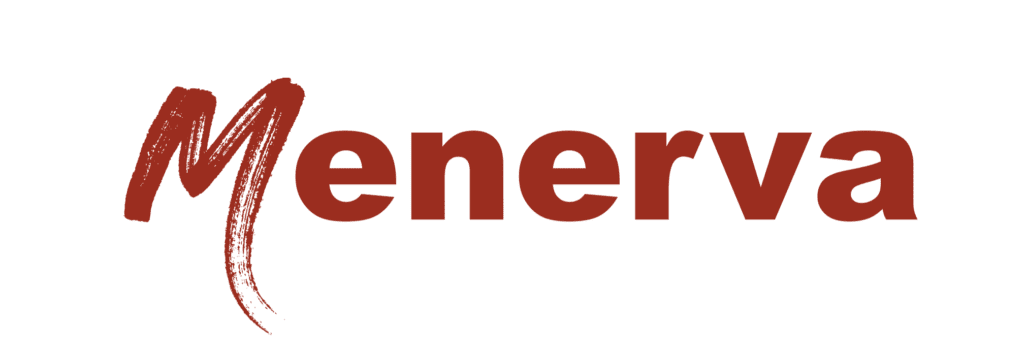Search engine optimization (SEO) is crucial in driving organic website traffic and increasing visibility in search engine result pages (SERPs). However, the approach to SEO can vary significantly depending on the scale and resources available to a business. Read on to learn the differences between enterprise SEO and small business SEO, highlighting the key components and best practices for each.
What Is Enterprise SEO?
Enterprise SEO refers to the practice of optimizing websites and online assets for large-scale businesses with a significant online presence. It involves strategies and tactics tailored to accommodate the complexities and unique challenges large organizations face.
Importance
For enterprise-level businesses, SEO is paramount for maintaining a competitive edge in a digital ecosystem. Effective enterprise SEO drives organic traffic, enhances brand visibility, and improves conversions, ultimately increasing revenue and market share.
Challenges and Opportunities
Implementing enterprise SEO can be complex due to its scale and intricacies. Typically, large organizations have extensive websites with numerous pages, making it challenging to optimize and maintain consistency across all assets. Additionally, enterprise SEO requires collaboration and coordination across multiple departments and stakeholders.
What Is Small Business SEO?
Small business SEO involves optimizing websites and online assets for small-scale businesses with limited resources and local or niche target markets. It focuses on cost-effective strategies to generate organic traffic and improve visibility within specific geographic areas or industry niches.
Importance
For small businesses, SEO is critical to establish a solid online presence, reach local customers, and compete with larger competitors. Effective small business SEO can drive targeted traffic, boost brand visibility, and attract potential customers actively searching for relevant products or services.
Challenges and Opportunities
Small businesses face unique challenges in implementing SEO due to budget constraints, limited resources, and intense competition in local markets. However, they also have opportunities to leverage local SEO and niche targeting to carve out a niche audience and potentially build a loyal customer base.
Key Differences Between Enterprise SEO and Small Business SEO
These differences highlight the varying strategies, resources, and priorities between enterprise-level SEO and small-business SEO. Understanding these distinctions is essential for tailoring SEO approaches to meet each business type’s specific needs and goals.
- Keyword Rankings and Authority: Keyword rankings are critical to SEO as they determine a website’s visibility in search engine results. One key distinction between Enterprise SEO and Small Business SEO lies in the types of keywords they can effectively rank for due to variations in website authority. Large enterprises with established brands and extensive online presence often possess higher domain authority*. This enables them to compete for highly valuable and competitive keywords. Their websites carry more weight in search engines, allowing them to rank prominently for popular industry terms. Small businesses typically have lower domain authority and focus on ranking for niche-specific, low-competition keywords. While these keywords may have lower search volumes, they are highly targeted, enabling small businesses to attract customers within specific local or niche markets.*Domain authority is a numerical score ranging from 1 to 100 that represents the credibility and influence of a website in the eyes of search engines, helping to determine its ranking position and visibility in search results. It is calculated by considering various factors like the quality and quantity of inbound links, content relevance, and user engagement metrics. Therefore, websites with higher domain authority are generally considered more authoritative and trustworthy by search engines.
- Content Strategy: A robust content strategy is crucial in both Enterprise SEO and Small Business SEO, but the approach differs based on the content volume and flexibility in optimization efforts. In Enterprise SEO, managing and optimizing a substantial amount of content is necessary and requires a well-defined content strategy and governance process. Their extensive websites with numerous pages require careful planning, organization, and coordination of content creation. A strategic approach addresses various target audiences, product lines, and regions. Keyword research and analysis identify relevant topics and optimize content for maximum visibility and engagement. On the other hand, small businesses typically have a smaller volume of content compared to enterprises. This allows for more flexibility in content creation and optimization efforts. Small businesses can be agile and responsive to their specific audience needs. They can focus on quality rather than quantity, ensuring that each piece of content aligns closely with their target market’s interests and requirements. However, keyword research and local SEO strategies are still essential to drive targeted organic traffic.
- Competition: Competition plays a significant role in both Enterprise SEO and Small Business SEO. Large enterprises face intense competition on a broader scale, requiring extensive SEO investment to maintain and improve rankings. In contrast, small businesses face competition at a local or niche level. By understanding their competition and leveraging their unique advantages, businesses can optimize their SEO efforts to effectively stand out and attract their target audience. Monitoring competitors’ strategies and adapting accordingly is crucial for success in SEO’s competitive landscape.
- Geography: Geography matters to both Enterprise and Small Business SEO. In Enterprise SEO, businesses target a broad audience across different regions, emphasizing global visibility. Small Business SEO focuses on specific local areas or niche markets, utilizing local SEO strategies to attract nearby customers actively searching for local products or services. Understanding the target market’s geographic dynamics is essential for tailoring SEO efforts and maximizing visibility in relevant search results.
- Technical Infrastructure: In both Enterprise SEO and Small Business SEO, a website’s technical infrastructure plays a fundamental role. Large enterprises with extensive websites prioritize maintaining a robust infrastructure to optimize for factors like site speed, mobile-friendliness, and structured data. Small businesses, while on a smaller scale, also must ensure their websites are user-friendly and accessible. Implementing proper site architecture and URL structure is important for both, regardless of business size. The technical infrastructure contributes to effective SEO by enabling search engines to crawl, index, and rank the website effectively.
- Scale and Complexity: Enterprise SEO operates on a larger scale, typically involving extensive websites with thousands or millions of pages. Small Business SEO optimizes relatively smaller websites with fewer pages and a more localized or niche target audience.
- Multiple Websites and Subdomains: In both Enterprise SEO and Small Business SEO, using multiple websites or subdomains is a consideration. Large enterprises often have multiple websites or subdomains to target different regions or product lines, allowing for customized SEO strategies. Small businesses typically have a single website but may use subdomains for specific categories or services. Careful planning and coordination are necessary to ensure proper optimization and consistency across multiple websites or subdomains. Each website or subdomain should align with the overall SEO strategy and contribute to the business’s objectives.
- Language Considerations: Language is a key factor in both Enterprise SEO and Small Business SEO. In Enterprise SEO, optimizing content in multiple languages is important for reaching international audiences. Small Business SEO focuses on localized language preferences to connect with local customers. Both approaches involve translating content, conducting language-specific keyword research, and ensuring a seamless user experience. Understanding the target audience’s language preferences is vital for effective communication and driving organic traffic. In Enterprise SEO, it is common to engage language experts specializing in localization to ensure content is customized to the specific country or region. In addition, these experts help adapt the language, cultural nuances, and idiomatic expressions to create content that resonates with the target audience, driving better engagement and increasing the chances of successful SEO outcomes.
- Resource Allocation: Large enterprises often have dedicated SEO teams or departments with significant resources, including personnel, tools, and budgets, allowing for extensive research, comprehensive optimization, and ongoing monitoring. Small businesses usually have limited resources allocated to SEO, often handled by business owners or a small team with multiple responsibilities. As mentioned in the previous section, for Enterprise SEO, incorporating language experts for localization requires a significant investment or allocation of additional resources, as it involves hiring professionals with expertise in specific languages and regions, increasing the overall cost of the SEO strategy.
- Target Audience and Local SEO: Enterprise SEO targets a broader audience, including national or international markets, and focuses on optimizing for high-volume keywords. Local SEO plays a smaller role. Small Business SEO prioritizes local SEO strategies, targeting specific geographic areas, optimizing for location-specific keywords, and leveraging Google My Business listings and local citations to increase visibility within the local community.
- Organizational Structure and Collaboration: Enterprise SEO involves multiple departments and stakeholders collaborating to achieve overarching business goals. Collaboration between marketing, sales, IT, and other relevant departments is crucial. A small business’s organizational structure is typically more streamlined, with a small marketing team or business owner handling decision-making and implementation, resulting in agile collaboration and faster execution.
- Budget and Cost Considerations: Enterprise SEO strategies are associated with more significant budgets, allowing investments in enterprise-level SEO tools, specialized agencies, and ongoing optimization efforts. Small businesses rely on cost-effective solutions, such as using free or affordable SEO tools, focusing on high-impact strategies, and leveraging local partnerships to drive organic visibility within budget constraints. While Enterprise SEO often comes with higher costs, the potential financial returns are usually more substantial due to the ability to target larger audiences and tap into lucrative markets. The economic benefits of Enterprise SEO stem from the ability to generate increased website traffic, expand brand awareness, and ultimately drive conversions at a larger scale. On the other hand, small businesses opt for cost-effective SEO approaches to maximize their limited resources, focusing on targeted strategies that prioritize local visibility and engagement with their specific customer base.
How We Can Help
We specialize in providing Enterprise SEO services tailored to meet the unique needs of businesses with large-scale online operations. With our expertise, resources, and experience, we can navigate the complexities of managing and optimizing extensive content portfolios. From strategic content planning, copywriting, and comprehensive keyword research to technical optimizations and advanced analytics tracking, we offer a full suite of services to enhance your online visibility and drive organic traffic. By partnering with us, you can position yourself for success in the digital realm and achieve your growth objectives. Contact us today to find out how we can help your business grow.





